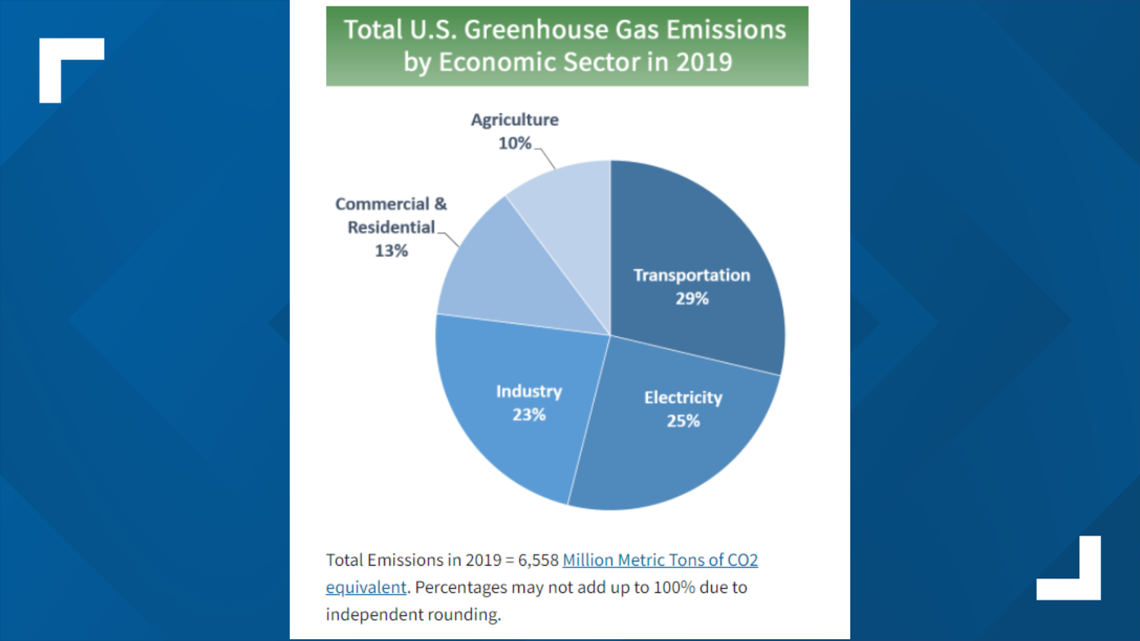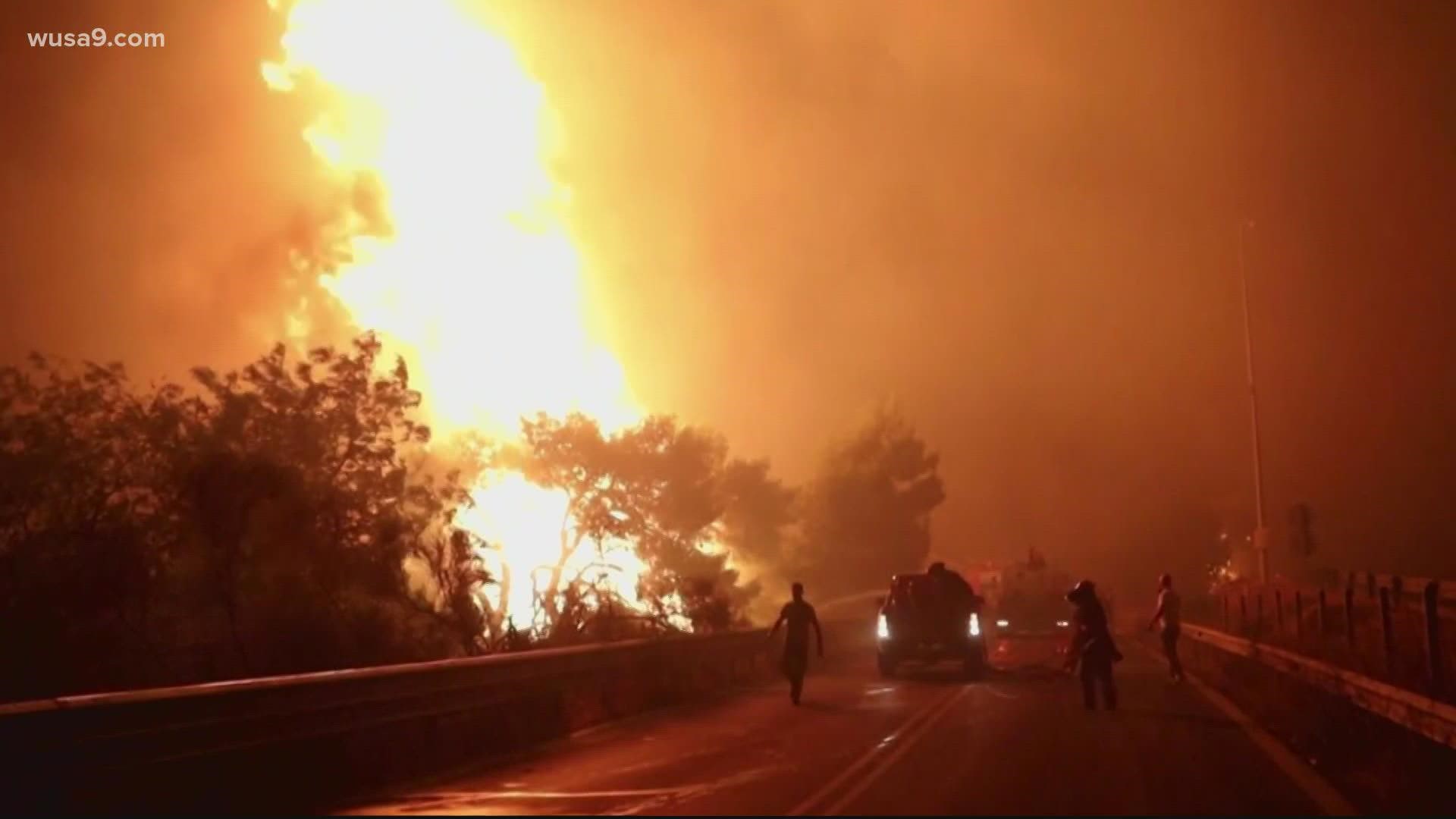WASHINGTON — A new U.N. report warns of disaster if greenhouse gas emissions are not reduced.
It's "unequivocal" that humans have warmed the planet and that "widespread and rapid" changes in Earth's systems have already taken place, according to the 234 scientists who wrote the report.
We're not just talking about milder winters here. The data points to a changing climate that will massively affect our access to food and water.
"The real issue is, as temperatures increase, the soil dries out," said Dr. Scott Sklar. He's a professor of sustainable energy at George Washington University and director of GWU Solar Institute.
This is already happening in the western part of the United States, Sklar said, where soil is drying out to levels not seen in modern history. This creates fires and immense water shortages. It also makes it harder to grow crops that feed millions of households.
With all forms of extreme weather, people lose their homes, businesses and entire communities. People of color, indigenous people and those with low incomes are affected first and worst.
The way to limit future changes, according to the report, is to minimize greenhouse gas emissions as much as possible. These include gases like carbon dioxide and methane.
To a large extent, governments and corporations have that power.
But communities and individuals can play a huge role in mitigating emissions. They can also set the pace when it comes to preparing for big changes ahead, Sklar said.
"Individual actions are always more important than government actions. We can lead what happens and we can accelerate what happens," Sklar said.
Transportation and electricity usage are two areas you can really make a difference. That's because those are the two most polluting industries, according to the U.S. Environmental Protection Agency.


"Those are the two things that, in fact, we as citizens have some control over," Sklar said.
Changes can be simple enough: walk, bike or use public transit instead of taking the car as much as you can. When you do need to use a car, try to run multiple errands in the same trip. When your car dies, get a more fuel efficient vehicle if you can.
"This is not something that's draconian," Sklar said. "It's just sort of smarter thinking."
When it comes to buildings, there are lots of steps you can take. Use L.E.D. lighting (these bulbs use up to 80% less electricity than the incandescent ones and can last up to 25x longer, according to the E.P.A.), turn the lights off when you leave the room and use power strips that have a switch on them. That way, when you're not using your appliances, you're not using power.
The next time you're buying an air conditioner, check out the energy efficiency ratings - this is called the SEER rating. The more energy efficient unit may be more costly up front, but you're likely to get that money back on your energy bills.
If you can get involved in community initiatives, here are some areas Sklar suggests starting:
- Programs for green investment
- Subsidies for renewable and energy-efficient HVAC systems
- Energy incentives for low income people
If you can, support community gardens and local farmers instead of relying on produce from across the country.
That will also help prepare your community for unreliable food supply chains, as the planet continues to heat up.
To prepare your home, equip it to survive severe weather. That could mean treating your windows to be able to handle heavy winds or repairing leaks and maintaining your building's foundation.
If you are a renter whose building owner is not on top of these things, research programs in your area that can facilitate those repairs and pass them along.
Preparations for climate change are a community endeavor. Institutions that have emerged during the COVID-19 pandemic, like the creation of mutual aid networks, will be helpful as the climate emergency escalates, Sklar said.
When it comes to limiting the extent of the crisis, people with the time and resources to implement one or more of these changes will be helping not only themselves, but also everyone else in their community who can't.
"We can't do business as usual," Sklar said. "Or the consequences are going to be stark."

